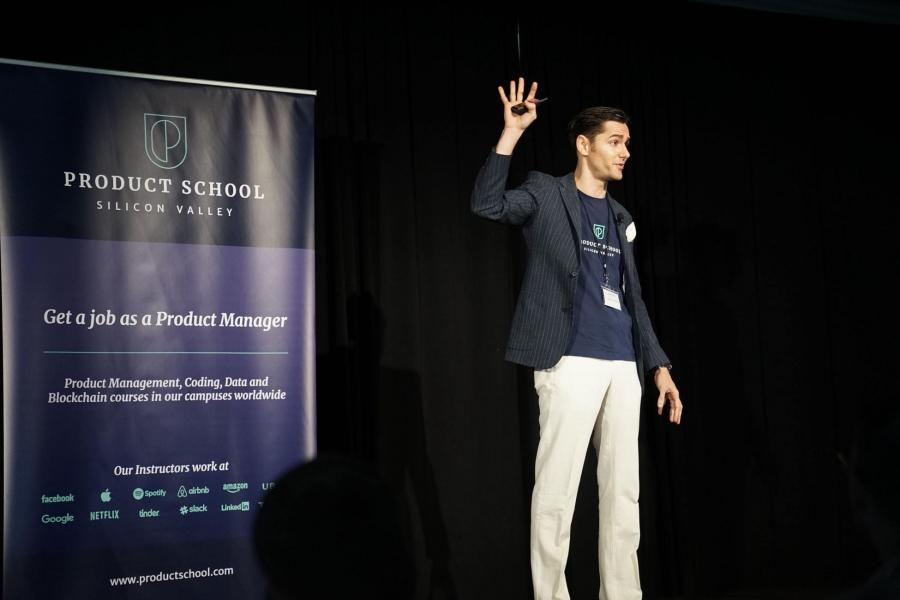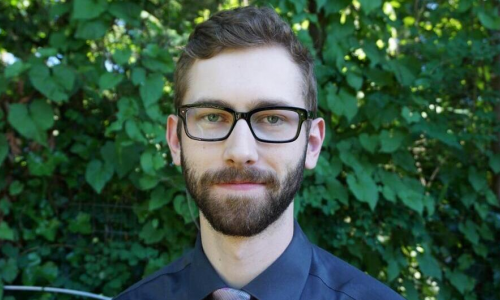
"How did you get to be where you are?"
It's a question I'm asked a few times a month, sometimes more. It seems like I can tell when it's about to be asked, too. The person sitting across from me will pause, a sudden glint in their eye, a breath catching in their throat as - for a barely noticeable fraction of a moment - they ask themselves whether the question is appropriate. Their eyes flick upward from that spot on the floor they were so intently focusing on to meet mine. Their face might even scrunch up a tiny bit in anticipation of the words that are about to come out of their mouth.
It's such a delectable question. I think that's because it's an invitation to tell a story, and we inherently love stories. It's also a tiny risk, as the person so questioned might decline the invitation (though they'd either have to be quite boring or quite mean to do so). Any reasonable person under normal circumstances would happily oblige such a request and probably enjoy doing so. Just as we love to hear stories, we also love to tell them.
Yes, I see your face scrunching up. I know what you're wondering.
After sharing my story verbally so many times, I thought it would be fun to write about it. I hope you enjoy reading about the path I travelled to the place I am now, as a career advisor in a major Canadian post-secondary institution.
The Beginning
I'd like to start out this story by admitting that I never once thought to myself, "I'd like to become a career advisor." Not really. Back when I first came to university, I was - like so many of my peers - pretty clueless about what direction I wanted to head in. I had internalized the message that successful people go to university, and I had the grades to do it, so I went. I had played around with a few other ideas - culinary school and audio engineering were floating in the ether for a while - but off I went to the University of Alberta, to get started on my Bachelor of Science degree.
Sciences had always been subjects of great interest to me (well, physics and chemistry, anyway). Additionally, I had no problems achieving good grades in these subjects in high school. Things weren't exactly smooth sailing in my first year of university, however. Calculus-based Newtonian Mechanics and Relativity? Electron probabilities? Linear algebra? What happened to physics and chemistry being fun? Suddenly, I was working ten times harder and had about 10% of my previous interest in these courses, and despite my distaste of calculus, that was a formula I could figure out.
After scraping by in my first semester, I decided to reward myself with some electives in the next few. History was interesting enough but didn't leave me yearning for more. I thought I'd love philosophy, but found it much too argumentative for my taste. Sociology and anthropology were just okay - as interesting as first-year survey courses in social sciences can be, I suppose, but nothing that inspired me to continue paying thousands of dollars to study them.
But then I took an introductory psychology class, and something changed. I looked forward to going to that class. The professor was fantastic. She was passionate, vibrant, animated, and gave the impression that she deeply cared about the subject matter and the students' engagement with it. I remember vividly a time when she was doing a lecture on something relatively benign - schemas or something like that - and right in the middle of her lecture, casually strolled over to the light switch in the room, suddenly flicked it off and screamed at the top of her lungs, to illustrate a violation of social norms. That kind of thing was normal in her class. I loved it.
The Middle
I decided after that to switch from sciences to arts, and major in psychology. I 'knew' that I would never become a psychologist (grades weren't good enough for grad school), so I didn't have any grand plans or anything like that. I just thought the subject was incredibly interesting. I eventually learned that not every psych class would be as great as the first, and that psychology as an academic discipline is different from what a lot of people expect it to be, but I was happy with my choice.
After my second year, life events lead me to move from chilly, friendly Edmonton to my current home of Vancouver. As a new Vancouver resident and student at UBC who didn't know anybody, I thought attending the transfer student orientation would be a good idea. While I was there I also noticed there was a student services fair going on, so I decided on a whim to scope out possible volunteer opportunities. To make a long story short, I discovered a really cool peer support organization and would go on to volunteer there for the remainder of my undergraduate studies (three years). At about my fourth year (of five), I encountered another amazing instructor in another elective course - this time counselling psychology (which, if you're not familiar, fell under the faculty of education, not arts & social sciences).
Not only was she a really good teacher, but she also presented me with a very simple message: "you should consider taking a master's degree in counselling psychology."
The End
No one had ever told me that - all I had heard about these kinds of programs was that they were impossible to get into. With this little vote of confidence, I was able to boost my GPA enough in my fifth year to make that master's degree a possibility, and off I went the following year to grad school. At this point in time, I was pretty sure I had things figured out: I would get my masters and become a clinical counsellor. I had taken a career counselling class in my undergraduate degree, and the experience was ruined by an unfortunately terrible instructor. So, when I took the masters level version of the same class I had pretty low expectations, and in the end, while the class was taught well and the assignments interesting - I didn't leave the class with any desire to be a career counsellor. My focus had always been on what I would call "emotionally deeper" work.
At the same time, I was taking these classes, I was doing practicum work for SFU Career Services, creating and administering a needs assessment survey. Meeting everyone at Career Services was awesome, and I soon learned that - thanks to some of the interesting new things they were doing - helping students with career-related issues can be fun. Fast forward about a year and a half, and there came a posting at Career Services for a part-time career advisor. I thought, "sure - why not? It will give me something to do while I finish my thesis." That contract, which was initially 3 months, led to the position I'm in today, two years later.
So What?
Okay, so I've already gone on a bit long with the telling of that story, but there are a few themes I'd like to point out. The first is that, at all points in my story, I was uncertain. I didn't know what I wanted to do, but I didn't let that hold me back from taking meaningful actions like volunteering and connecting with professors. Largely as a result of these actions, new and unplanned opportunities presented themselves, and I allowed myself to seriously consider them. The last point I'd like to make is that, while I didn't know what I was going to do next at most points in my story, there are clear and consistent patterns, and a sense of purpose and direction when I step back and reflect on the larger picture. This retrospective clarity has several names - chaos theorists like to call it self-similarity, Steve Jobs called it connecting the dots, and you can call it whatever you want.
For my money, though, "how did you get to be where you are?" is truly one of the best questions you can ask - of others as well as of yourself. Try it sometime!
Beyond the Blog
- Visit the Career Services website to view job postings, book a career advising appointment, register for workshops and more
















